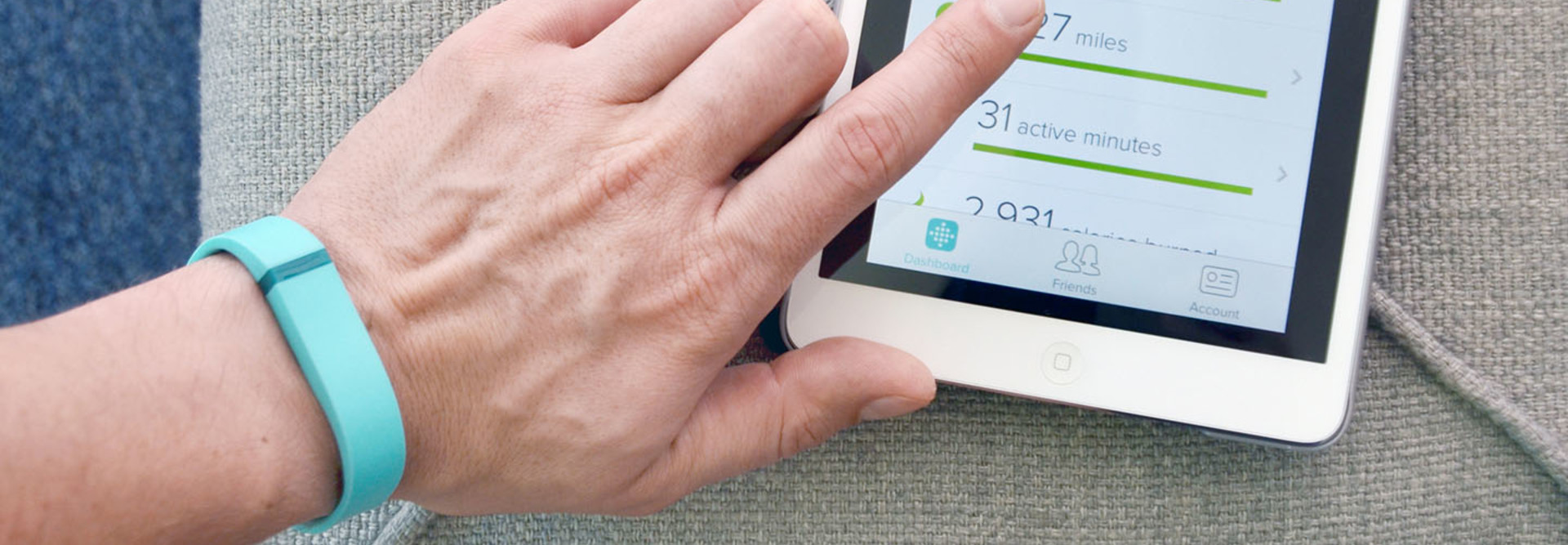Fitbit Pushes into the Clinical Space to Make Medicine More Personal
As precision and personalized medicine take hold in healthcare and patients get more comfortable with taking ownership of their own health data, wearable biometric trackers are taking off.
And with widespread personalization in mind, the health system at large has begun to view Fitbits not just as a handy gadget for consumers, but as a clinical device that can help to collect valuable and robust data for providers and care teams.
SIGN UP: Get more news from the HealthTech newsletter in your inbox every two weeks!
Fitbit Teams with Google to Deliver Data Across the Health System
Fitbit is embracing this change, and announced in April a collaboration with Google that aims to make it easier for clinicians and patients to work together. By tapping Google’s new Cloud Healthcare API, Fitbit aims to “integrate further into the healthcare system, such as by connecting user data with electronic medical records (EMR),” the announcement explains. By combining EMR data with Fitbit info, clinicians can help to unlock personalized care.
“Over the past decade, we have built an incredible foundation as the leading wearables brand, helping millions of people around the world make lasting behavior changes that improve their health and wellness through fun and engaging experiences. Working with Google gives us an opportunity to transform how we scale our business, allowing us to reach more people around the world faster, while also enhancing the experience we offer to our users and the healthcare system,” says James Park, co-founder and CEO of Fitbit, in the statement. “This collaboration will accelerate the pace of innovation to define the next generation of healthcare and wearables.”
The integration with Google will allow Fitbit to “more securely manage and transfer users’ health data across entities,” Adam Pellegrini, general manager of Fitbit Health Solutions, tells MobiHealthNews, which will in turn enable more interoperability across the healthcare sector.
“Data exchange is one piece, but it’s the fact that we can enable doctors, care managers, dieticians, health coaches, all to work together in a care team format using this type of healthcare API; [that we can] tear down the silos of health information by bringing in [EHR] data and also bidirectional data,” Pellegrini tells MobiHealthNews. “I think this will enable us to really create a fantastic healthcare professional experience, and in my mind that’s how I picture this as being different.”
The innovation doesn’t end with interoperability, however, as the move of Fitbit’s data onto Google’s cloud platform could make predictive analytics and AI a reality for providers everywhere.
“Really the most exciting thing to me is the leveraging of their AI and machine learning capabilities [to] do predictive analytic algorithms,” Pelligrini says. “If you think about the fact that we have some of the largest health and fitness databases ever, in history, leveraging machine learning and AI on top of data, from a healthcare perspective, we can actually predict who needs help first. You can be proactive in care, and you can be efficient in care.”
Providers Put Fitbit’s Clinical Abilities into Practice
Already, healthcare organizations are using Fitbit to collect robust information on patients and populations, most keenly in research studies. The National Sleep Foundation, for example, has partnered with researchers from Indiana University’s Regenstrief Institute on a new insomnia study that equips participants with Fitbits and uses the wearables’ data as its primary source.
According to a press release, the study aims to provide insight into how Fitbits and other consumer wearables can monitor and deliver relevant sleep information “as a vital sign” to primary care physicians.
“Wearable devices have revolutionized our ability to collect and monitor health data on a much larger scale and the ability to provide sleep data on a daily basis can help increase our understanding of real world sleep habits and how to improve them,” Dr. Conor Heneghan, lead sleep research scientist at Fitbit, says in the statement.
This is certainly not the only study on how information from the wearable can be integrated into other realms of care to create a full picture of a patient’s health. A new study released July 5 in Nature indicates that, for cancer patients, Fitbit step data — or the number of steps a patient takes per day — could help to predict hospitalization. While researchers stress the data is not yet definitive, patients that took more than 1,000 steps per day, for instance, were more likely to have increased survival rates and less likely to experience an adverse event.
"An objective evaluation of patient performance status (PS) is difficult because patients spend the majority of their time outside of the clinic, self-report to providers, and undergo dynamic changes throughout their treatment experience," researchers write in the report. "Real-time, objective activity data may allow for a more accurate assessment of PS and physical function, while reducing the subjectivity and bias associated with current assessments."









